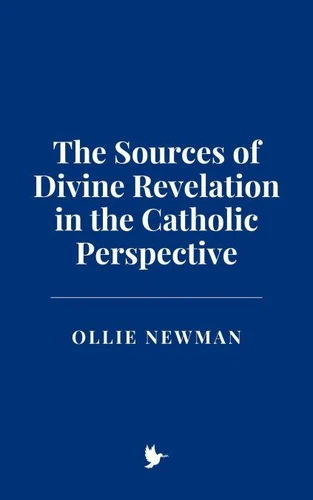The Sources of Divine Revelation in the Catholic Perspective
Par :Formats :
Disponible dans votre compte client Decitre ou Furet du Nord dès validation de votre commande. Le format ePub est :
- Compatible avec une lecture sur My Vivlio (smartphone, tablette, ordinateur)
- Compatible avec une lecture sur liseuses Vivlio
- Pour les liseuses autres que Vivlio, vous devez utiliser le logiciel Adobe Digital Edition. Non compatible avec la lecture sur les liseuses Kindle, Remarkable et Sony
 , qui est-ce ?
, qui est-ce ?Notre partenaire de plateforme de lecture numérique où vous retrouverez l'ensemble de vos ebooks gratuitement
Pour en savoir plus sur nos ebooks, consultez notre aide en ligne ici
- FormatePub
- ISBN8224938438
- EAN9798224938438
- Date de parution13/02/2025
- Protection num.pas de protection
- Infos supplémentairesepub
- ÉditeurVirtued Press
Résumé
The understanding of Divine Revelation holds a central place in Catholic theology, as it is through Revelation that God reveals Himself to humanity and offers the path to salvation. Revelation, in the Catholic sense, is not merely the conveyance of knowledge about God but His self-communication, His unveiling of His divine will and purposes for the world. It is within this broad framework of Revelation that the Catholic Church believes God's truth is transmitted to humankind.
Central to the Catholic understanding of Revelation are the two foundational sources: Sacred Scripture and Sacred Tradition, which are inseparably linked in the transmission of the faith. Yet, these sources do not stand in isolation; they are illuminated by the ongoing authority of the Church's Magisterium, which is charged with the responsibility of interpreting and safeguarding these divine truths.
This introduction seeks to provide an initial foray into understanding these sources of Revelation by examining the historical development of the concept of Revelation, key theological figures, primary texts, and the significance of the Church's role in mediating divine truth.
Central to the Catholic understanding of Revelation are the two foundational sources: Sacred Scripture and Sacred Tradition, which are inseparably linked in the transmission of the faith. Yet, these sources do not stand in isolation; they are illuminated by the ongoing authority of the Church's Magisterium, which is charged with the responsibility of interpreting and safeguarding these divine truths.
This introduction seeks to provide an initial foray into understanding these sources of Revelation by examining the historical development of the concept of Revelation, key theological figures, primary texts, and the significance of the Church's role in mediating divine truth.
The understanding of Divine Revelation holds a central place in Catholic theology, as it is through Revelation that God reveals Himself to humanity and offers the path to salvation. Revelation, in the Catholic sense, is not merely the conveyance of knowledge about God but His self-communication, His unveiling of His divine will and purposes for the world. It is within this broad framework of Revelation that the Catholic Church believes God's truth is transmitted to humankind.
Central to the Catholic understanding of Revelation are the two foundational sources: Sacred Scripture and Sacred Tradition, which are inseparably linked in the transmission of the faith. Yet, these sources do not stand in isolation; they are illuminated by the ongoing authority of the Church's Magisterium, which is charged with the responsibility of interpreting and safeguarding these divine truths.
This introduction seeks to provide an initial foray into understanding these sources of Revelation by examining the historical development of the concept of Revelation, key theological figures, primary texts, and the significance of the Church's role in mediating divine truth.
Central to the Catholic understanding of Revelation are the two foundational sources: Sacred Scripture and Sacred Tradition, which are inseparably linked in the transmission of the faith. Yet, these sources do not stand in isolation; they are illuminated by the ongoing authority of the Church's Magisterium, which is charged with the responsibility of interpreting and safeguarding these divine truths.
This introduction seeks to provide an initial foray into understanding these sources of Revelation by examining the historical development of the concept of Revelation, key theological figures, primary texts, and the significance of the Church's role in mediating divine truth.























